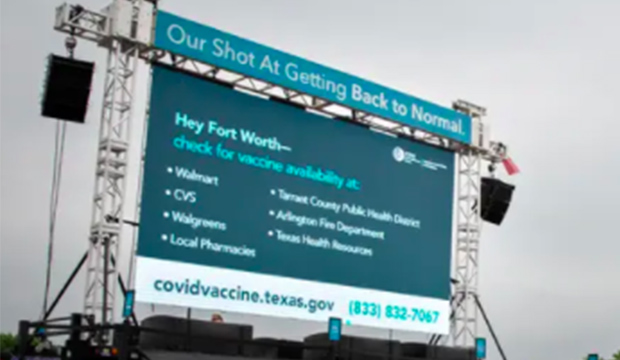|
|
|
|
|
Greetings,
With the 87th regular legislative session coming to a close at the end of this month, the state released $11 billion in federal stimulus money to public schools. Police reform bills have passed the Texas House, while a poll shows a majority of Texans oppose police chokeholds. Texas pivots vaccine strategies as supply outpaces demand. President Joe Biden proposes investing in higher education student success with $62 billion and insists taxes will not rise for most people. The State Department is working to clear the way for F-1 and M-1 visa students with National Interest Exceptions and is engaging institutions on ways to overcome backlog challenges facing consulates. Read below for information about Texas Comptroller Glen Hegar’s newest revenue estimate announcement made to state budget writers on May 3.
We will be following legislation at the state and federal levels that pertains to higher education and its impact on UTA. As you receive updates, please let us know if there are any topics you would like to hear more about from Government Relations.
Thank you for your dedication to UTA, and Go Mavs!
— UTA Government Relations
|
|
|
|
|
|

|
|
Law and order
Texas House passes package of police reform bills, including more substantive disciplinary action for misconduct.
|
|
|
|
|
|
|

|
|
Vaccine plan
With half of eligible Texans unvaccinated and supply exceeding demand, Texas shifts COVID-19 vaccination strategies.
|
|
|
|
|
|
|
State Department announces national interest exceptions for certain travelers
|
|
On April 27, the Department of State announced National Interest Exceptions (NIE) for certain travelers from China, Iran, Brazil, South Africa, Schengen Area, United Kingdom, and Ireland related to Presidential Proclamations 9984, 9992, and 10143. Students on F-1 and M-1 visas for academic programs beginning on or after August 1, 2021, do not need to contact an embassy or consulate to seek an individual NIE to travel. Additionally, new students who are deemed qualified for an F-1 or M-1 visa will automatically be considered for an NIE to travel.
House Foreign Affairs Committee Chairman Gregory Meeks (D-NY) requested information on the State Department’s plan to address student visa processing backlogs, challenges impacting consular posts and their ability to process student visas, and outreach to engage institutions on overcoming challenges.
An administrator at Brigham Young University created a spreadsheet on the wait times for student visa appointments at all U.S. embassies and consulates.
|
|
|
|
State of Texas economic overview
|
|
In the final days of the 2021 legislative session, the House and Senate are negotiating in Conference Committee about the final details of the state budget for the 2022-23 biennium. Each chamber brought budget proposals that are largely the same for higher education. Both chambers maintained general revenue for higher education formula funding, which is a top UTA priority. Both chambers also maintained research funding and statewide nursing education funding. The Senate maintained financial aid funding, while the House proposed an additional $110 million to support student financial aid, an item the committee will soon negotiate. Overall, UTA’s budget prospects look positive, in part due to enrollment growth relative to other institutions, but much remains to be done before the final budget is authorized.
On May 3, the Texas comptroller provided an update of the state’s revenue picture for the next two years. While the state economy and state revenue collections are not back to pre-pandemic levels, the announcement marks another improvement both for this year and for the 2022-23 biennium. The comptroller revised the revenue estimate upward by $3.1 billion, announcing that the state is now expected to have $115.65 billion available for general purpose spending in the 2022-23 biennium. Stronger than expected revenue collections also have eliminated the budget deficit for the current fiscal year 2021, converting a $1.0 billion deficit into a $725 million surplus. The state’s rainy day fund is expected to reach over $12 billion by the end of 2023.
These improvements to the budget are due to a steady economic recovery from the COVID-19 pandemic. Case counts and hospitalizations have continued to decline in Texas, while economic activity and tax collections have climbed. Federal stimulus checks and enhanced unemployment benefits boosted personal spending and saving, and higher oil and natural gas prices boosted production and state revenue. While the economic recovery has been stronger than expected, the comptroller cautioned that much uncertainty remains.
|
|
|
|
Upcoming meetings
|
|
The Texas House of Representatives and the Texas Senate live and archived sessions are available now.
Senate Hearings
House Hearings
|
|
|
|
|
|
Your input helps UTA
|
|
The University needs the support of its faculty, staff, and alumni to ensure we continue to receive resources to serve our students, conduct research, and expand our programs. For more information on how you can support the University and its legislative goals, contact:
- Jeff Jeter, vice president of Government Relations, at jeter@uta.edu
- Martin Lujan, director of Government Relations, at martin.lujan@uta.edu
- Bogan Pollock, director of Public Policy, at bogan@uta.edu
- Trevor Simmons, senior budget analyst, at trevor.simmons@uta.edu
- Beth Robinson, administrative assistant, at beth.robinson@uta.edu
Follow us on Facebook and Twitter.
|
|
|
|
|
|